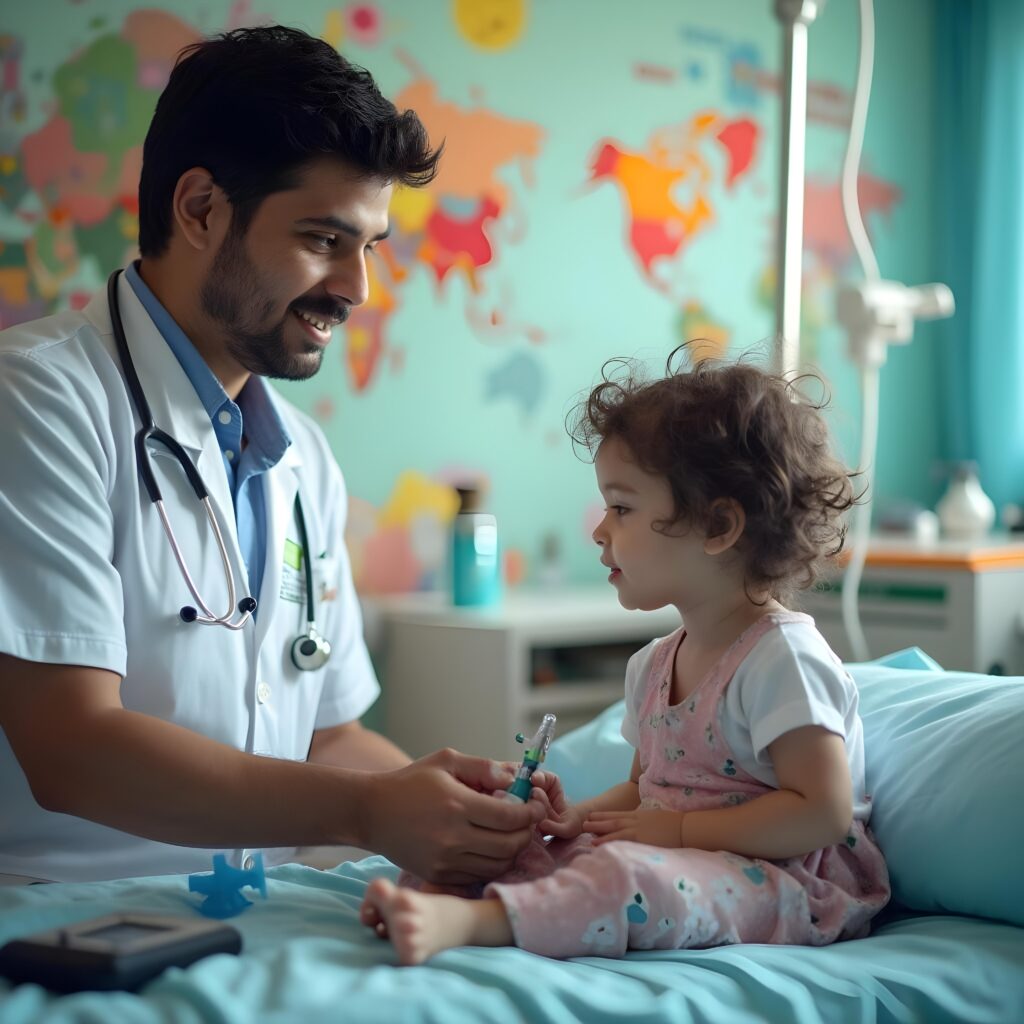Advance Your Career with Our Fellowship in Pediatric Pulmonology
Specialized Training for Excellence in Child Respiratory Care. For admissions and more details, visit Vidath Academy.
Course Overview
Our Fellowship in Pediatric Pulmonology, offered in collaboration with Vidath Academy, provides specialized training to equip healthcare professionals with advanced skills in diagnosing and managing respiratory and sleep-related conditions in children
- Hands-on training with state-of-the-art medical tools
- A comprehensive curriculum focused on pediatric respiratory care.
- Mentorship from leading experts in pulmonology and sleep medicine.
- Opportunities to conduct research and contribute to medical advancements

Eligibility and Course Structure
- Eligibility
- Duration
- Course Structure
Open to pediatricians and respiratory medicine practitioners aiming to specialize in pediatric respiratory care
Two-year comprehensive program with hands-on clinical experience
- Attendance: Minimum 85% required.
- Assessments: Satisfactory internal assessments and approval of dissertation/research project.
- Certification: Eligibility for theory examination upon meeting assessment criteria.
Syllabus Highlights
Respiratory Symptom Evaluation
This module focuses on identifying and analyzing respiratory symptoms in pediatric patients. It teaches healthcare professionals how to gather a detailed medical history, evaluate common symptoms such as chronic cough, wheezing, or shortness of breath, and perform a physical examination to identify potential respiratory issues
Pulmonary Function Testing
Learn how to perform and interpret pulmonary function tests (PFTs), which measure how well a child’s lungs are working. This includes spirometry, peak flow measurement, and diffusion capacity tests. These tests are critical in diagnosing conditions such as asthma, bronchitis, and other lung diseases.
Flexible Bronchoscopy
This hands-on module teaches the use of a flexible bronchoscope to examine the airways and lungs. It covers how to perform the procedure safely, collect samples for diagnostic purposes, and identify abnormalities such as foreign body obstructions, infections, or structural anomalies.
Management of Asthma and Wheezing Disorders
This section covers evidence-based approaches to diagnosing, treating, and managing asthma and other wheezing disorders in children. It includes training on inhalation therapy, understanding triggers, and creating personalized asthma action plans to ensure better quality of life for patients.
Sleep Medicine in Pediatrics
Learn to diagnose and treat sleep-related breathing disorders such as sleep apnea, snoring, and insomnia in children. This module explores the impact of poor sleep on child development and provides strategies for behavioral and medical interventions.
Inhalation Therapy Techniques
This module covers the correct use of inhalation devices, including nebulizers, inhalers, and spacers. It focuses on patient education and ensuring that children and their caregivers can use these devices effectively to manage respiratory conditions like asthma and chronic obstructive pulmonary diseases.
